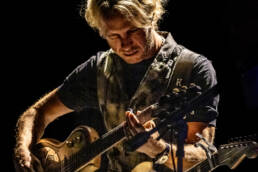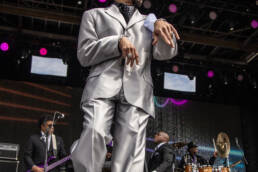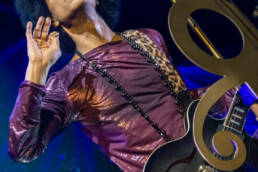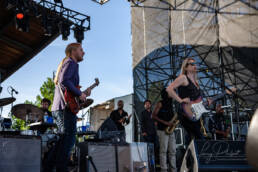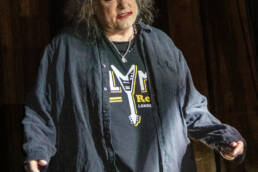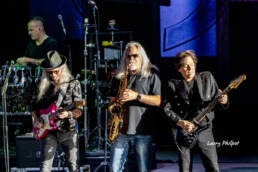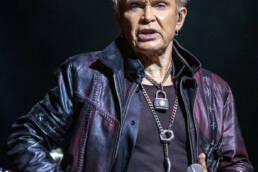John Hiatt: Gravel voiced Troubadour from Indianapolis
John Hiatt: The Gravel-Voiced Troubadour
Imagine a scruffy kid in an Indianapolis attic, picking out tunes on a hand-me-down guitar, his voice a raw scrape against the Midwest silence. John Hiatt didn’t chase music—it chased him, a lifeline through a life pocked with loss and hard-earned wisdom. His career’s a winding road of rootsy rock, heartbreak, and redemption, a voice like weathered leather spinning tales that hit you square in the chest. This is the story of a man who turned pain into poetry, a survivor who made every note a battle cry and a balm.
The Spark That Lit the Fire
For John Hiatt, music was an anchor in a sea of chaos. Growing up in a big Catholic family, he lost his older brother to suicide at 11, then his dad to illness at 13—blows that left him reeling. A cheap guitar from his brother Michael became his refuge, a way to howl back at the dark. Sneaking Elvis and Dylan records, he taught himself chords, dreaming beyond Indy’s gray sprawl. At 18, he hitchhiked to Nashville, landing a $25-a-week songwriting gig at Tree Music. Music wasn’t ambition—it was survival, a thread to hold onto when the world kept unraveling. That grit drove him from dive bars to cult hero status, one stubborn song at a time.
A Life Shaped by Sound
Born August 20, 1952, in Indianapolis, Indiana, John Robert Hiatt was the sixth of seven kids to Robert and Ruth. Tragedy shaped him early—Michael’s death in 1963, then Robert’s in 1965—pushing him into music’s arms. In Nashville by 1970, he cut his teeth penning for others, scoring a hit with Three Dog Night’s “Sure As I’m Sittin’ Here.” Signed to Epic Records, his debut Hangin’ Around the Observatory (1974) flopped, but he kept grinding through labels—MCA, Geffen—until Bring the Family (1987) made him a roots-rock darling.
His personal life’s a jagged line: a first marriage ended fast, a second to Nancy Stanley in 1980 brought daughter Lilly and a suicide attempt by Nancy in 1985. Sober since ’84, he married Nancy Hiatt in 1986, raising daughters Savannah and Georgia. Now a grandfather, he’s mellowed, but his growl still bites.
The Career That Soared
Hiatt’s a solo warrior, though bands have boosted him. Early flops like Slug Line (1979) gave way to Bring the Family (1987), Slow Turning (1988), and The Tiki Bar Is Open (2001). He’s a songwriter’s songwriter—covers by Bonnie Raitt and Bob Dylan prove it.
Bandmates and Collaborations: No permanent band, but Bring the Family featured Ry Cooder (guitar), Nick Lowe (bass), and Jim Keltner (drums)—a supergroup moment. The New West trio with Kenny Blevins (drums) and Patrick O’Hearn (bass) backed Stolen Moments (1990). He’s duetted with Raitt (“Thing Called Love”), Rosanne Cash, and Jeff Healey, while Elvis Costello and Emmylou Harris have sung his praises.
TV and Film: “Have a Little Faith in Me” soared in Benny & Joon, “Feels Like Rain” in Love Jones. He’s graced Austin City Limits, played a bartender in The Country Bears (2002), and popped up on Treme. His tunes hum in The Rookie and True Blood.
Awards and Honors: No Grammys, but he’s got a 2008 Americana Music Lifetime Achievement Award for Songwriting and a Nashville Songwriters Hall of Fame nod (2001). Bring the Family ranks on Rolling Stone’s 500 Greatest Albums.
Biggest Songs:
- “Have a Little Faith in Me” (1987) – Hiatt’s own, a soul-baring ballad, uncharted but iconic.
- “Thing Called Love” (1987) – His pen, a No. 1 country hit via Bonnie Raitt’s cover.
- “Slow Turning” (1988) – Hiatt’s gritty gem, modest chart but a fan fave.
- “Perfectly Good Guitar” (1993) – His too, a roots-rock snarl, cult classic.
The Shadows of Controversy
Hiatt’s life dodged tabloid flash but not darkness. His 1985 spiral—Nancy Stanley’s suicide, his own booze-soaked despair—hit hard; he’s called it “the bottom I had to climb out of.” A 1979 arrest for public intoxication in London barely dented his rep, but label woes did—Geffen dropped him after Riding with the King (1983) underperformed, sparking fan grumbles of “underrated genius.”
In 2012, a feud flared when he sued a Dutch festival for underpayment—settled quietly, but it showed his scrappy side. His 2020 Trump critique on X (“a con man with no soul”) riled conservative fans, though he shrugged it off: “I write what I see.” The scars—personal, not public—fuel his best work, raw and unfiltered.
The Voice That Endures
John Hiatt’s a road-worn bard—a man who turned Indy’s ghosts into songs that ache and uplift. Music wasn’t his plan; it was his heartbeat, a tether through loss, addiction, and quiet victories. From Nashville’s backrooms to roots-rock reverence, he’s carved a niche with a voice like gravel and grace. As he tours into 2025, that raspy croon still hooks you—proof that some troubadours don’t fade, they deepen. Hiatt’s not just a singer; he’s a storyteller, stitching life’s frayed edges into gold, one weathered note at a time.
